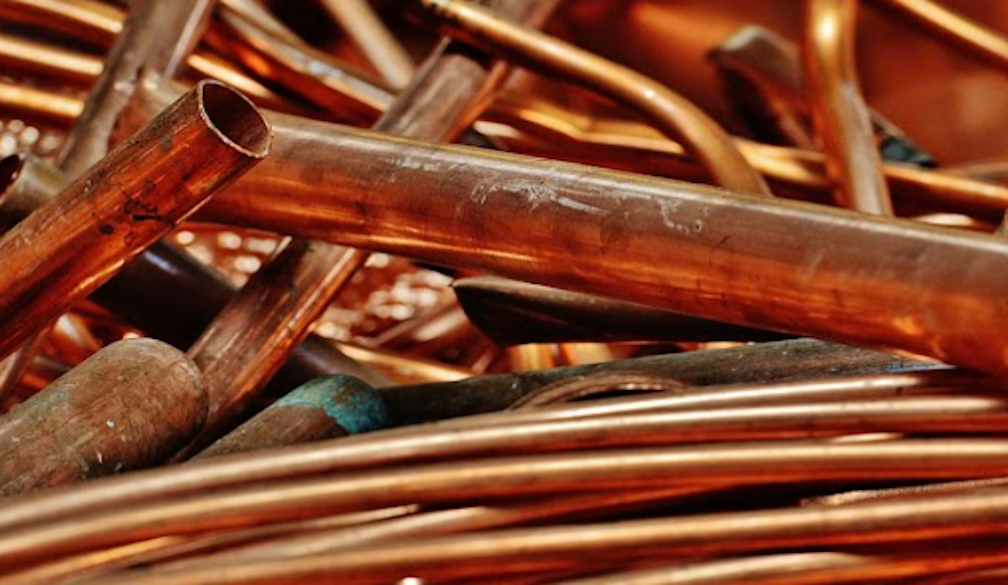Deciphering the Intricacies of Scrap Copper Prices in Melbourne: A Comprehensive Analysis

Introduction
In the bustling metropolis of Melbourne, where innovation meets industry, the scrap copper market forms an integral part of the city's economic landscape. From the scrapyards scattered across its suburbs to the intricate network of recyclers and manufacturers, the price of scrap copper in Melbourne serves as a barometer of economic activity, sustainability efforts, and global market trends.
In this article, we embark on a journey to unravel the multifaceted dynamics that underpin scrap copper price Melbourne. From the factors influencing supply and demand to the challenges and opportunities facing industry players, we delve deep into the heart of this essential commodity market.
Understanding the Foundation: Supply and Demand Dynamics
At its core, the price of scrap copper in Melbourne, like any commodity, is governed by the fundamental forces of supply and demand. Copper, prized for its conductivity, corrosion resistance, and malleability, finds its way into a diverse array of applications, ranging from electrical wiring and plumbing to telecommunications and transportation.
The supply of scrap copper Melbourne is sourced from various channels, including construction and demolition activities, industrial manufacturing processes, and end-of-life products such as electronic appliances and automotive components. As Melbourne continues to experience urban development and infrastructure projects, the influx of copper-rich materials into scrapyards remains robust, shaping the supply side of the market.
On the demand side, the consumption of copper is driven by factors such as construction and infrastructure projects, manufacturing activity, and technological advancements. Melbourne's status as a hub of innovation and development ensures a steady demand for copper across diverse sectors, further influencing scrap copper prices.
Navigating Global Trends and Market Forces
While local dynamics play a significant role, scrap copper prices in Melbourne are also influenced by broader global trends and market forces. One of the primary drivers is the state of the global economy. Economic booms typically coincide with increased demand for copper, particularly in construction, manufacturing, and infrastructure sectors, leading to upward pressure on prices. Conversely, economic downturns can dampen demand, resulting in price corrections.
Geopolitical factors also exert influence, with events such as trade tensions, geopolitical conflicts, and regulatory changes in major copper-producing regions impacting supply chains and market sentiment. Melbourne, as a global city with strong connections to international markets, is not immune to these externalities, and fluctuations in global copper prices reverberate through its local market.
Moreover, technological advancements and shifts towards sustainability are reshaping the scrap copper market. The growing emphasis on renewable energy sources and electric mobility has spurred demand for copper, particularly in sectors such as solar energy, wind power, and electric vehicles. These emerging trends contribute to the evolving dynamics of scrap copper prices in Melbourne, driving both challenges and opportunities for industry stakeholders.
Navigating Local Challenges and Opportunities
In addition to global trends, scrap copper prices in Melbourne are influenced by a range of local factors and challenges. Regulatory frameworks, environmental policies, and infrastructure developments all play a role in shaping the operating environment for scrap metal recyclers and manufacturers in the city.
Melbourne's commitment to sustainability and waste management underscores initiatives aimed at promoting recycling and reducing landfill waste. This includes support for scrap metal recycling businesses, incentives for waste diversion, and regulatory measures to ensure environmental compliance. Such initiatives not only contribute to the circular economy but also influence the supply and availability of scrap copper in Melbourne, thereby impacting prices.
Furthermore, Melbourne's interconnectedness with regional and national markets introduces additional complexities. Changes in transportation costs, regulatory standards, or market dynamics in neighboring states or countries can ripple through the supply chain, affecting the flow of scrap copper and prices in the local market.
Challenges abound for industry stakeholders, ranging from market volatility and price fluctuations to operational hurdles and regulatory compliance. However, amidst these challenges lie opportunities for innovation, collaboration, and sustainable growth.
Embracing Innovation and Sustainability
As Melbourne strives to position itself as a leader in sustainability and innovation, the scrap copper industry plays a pivotal role in advancing these goals. Innovations in recycling technologies, such as pyrometallurgical and hydrometallurgical processes, enable the recovery of copper from complex waste streams, including electronic waste and industrial by-products. By harnessing these technologies, Melbourne can reduce its reliance on virgin copper ore, minimize environmental impact, and enhance resource efficiency.
Moreover, collaboration across the value chain—from scrap collectors and recyclers to manufacturers and end-users—can foster synergies and create value-added opportunities. Initiatives such as closed-loop recycling and product stewardship programs promote the circular economy principles, driving sustainability and resilience in the scrap copper market.
Conclusion
In conclusion, the price of scrap copper in Melbourne is shaped by a myriad of factors, ranging from global economic trends and market forces to local dynamics and sustainability initiatives. As Melbourne navigates the complexities of the scrap copper market, embracing innovation, collaboration, and sustainability will be key to unlocking its full potential.
By fostering a conducive regulatory environment, investing in recycling infrastructure, and promoting sustainable practices, Melbourne can not only strengthen its position in the global scrap copper market but also contribute to environmental stewardship and economic resilience. As the city continues to evolve, the scrap copper industry stands poised to play a pivotal role in shaping its sustainable future.







